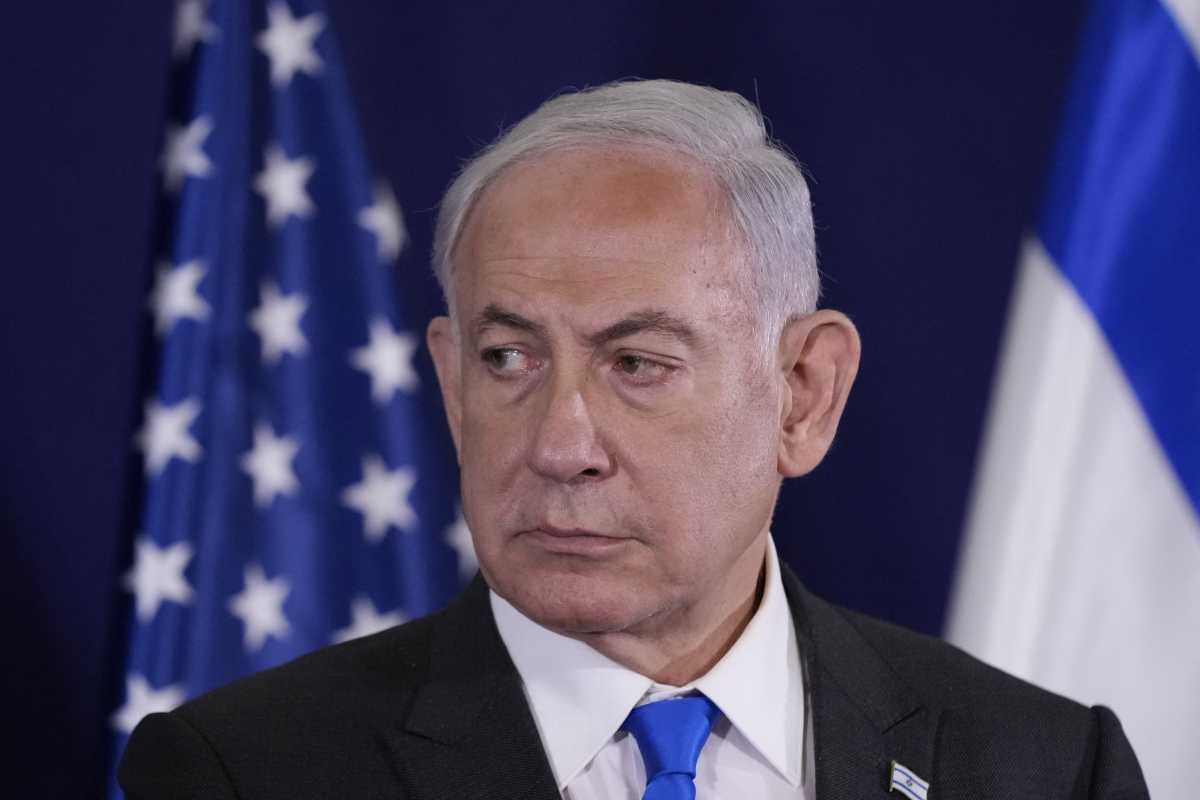Politics
Netanyahu Rejects U.S. Call for Palestinian State, Prompting Tensions

Prime Minister Benjamin Netanyahu has firmly rejected the United States‘ calls to scale back or work towards the establishment of a Palestinian state following the ongoing war, leading to increased tensions between the two countries. The disagreement highlights a growing divide over Israel’s military campaign and its plans for the future of the region.
The White House national security spokesperson, John Kirby, responded to Netanyahu’s comments stating, ‘We obviously see it differently.’ His remarks came just a day after U.S. Secretary of State Antony Blinken emphasized that Israel would not have ‘genuine security’ without a pathway to Palestinian independence. The White House had previously urged Israel to reduce the intensity of its military offensive in Gaza.
In a nationally televised news conference, Netanyahu remained defiant, vowing to continue the offensive until the goals of destroying Hamas and bringing back all remaining hostages held by the group are achieved. He dismissed criticism from Israeli critics, declaring that nothing less than ‘absolute victory’ was acceptable.
The ongoing war was triggered by a cross-border attack by Hamas on October 7, resulting in significant casualties and numerous hostages being held by the militants. Israel’s military campaign, which has been one of the deadliest and most destructive in recent history, has led to the loss of thousands of Palestinian lives, widespread destruction, and the displacement of the majority of the population in Gaza.
The international community has expressed increasing concerns over the overwhelming cost of the war, leading to growing calls for a ceasefire. While the United States had initially provided unwavering support, they have recently urged Israel to clarify their vision for postwar Gaza. The U.S. has advocated for the revitalization of the internationally recognized Palestinian Authority and the establishment of a Palestinian state, encompassing Gaza, the West Bank, and Jerusalem.
Speaking at the World Economic Forum in Davos, Switzerland, Secretary Blinken emphasized that the two-state solution remains the best approach to safeguard Israel’s security, foster unity among moderate Arab nations, and isolate Iran. He stressed that without a pathway to a Palestinian state, genuine security for Israel would not be possible. Saudi Arabia‘s foreign minister echoed these sentiments, stating that full relations with Israel could only be established through a peace agreement and the creation of a Palestinian state.
Netanyahu, however, who leads a far-right government and has long been opposed to a two-state solution, reiterated his stance against it. He argued that a Palestinian state would become a launching pad for further attacks against Israel and emphasized the necessity of Israel’s security control over the entire territory in question. Netanyahu firmly rejected any attempts to coerce Israel into a reality that would endanger its existence.
The White House promptly rebuked Netanyahu’s statements, reaffirming President Joe Biden‘s commitment to pursuing a two-state solution. As the war continues, divisions within Israeli society have resurfaced regarding Netanyahu’s handling of the conflict. Families of the hostages and their supporters have called for a new ceasefire in order to secure the release of their loved ones. Hamas’s recent release of some hostages has only intensified these calls.












